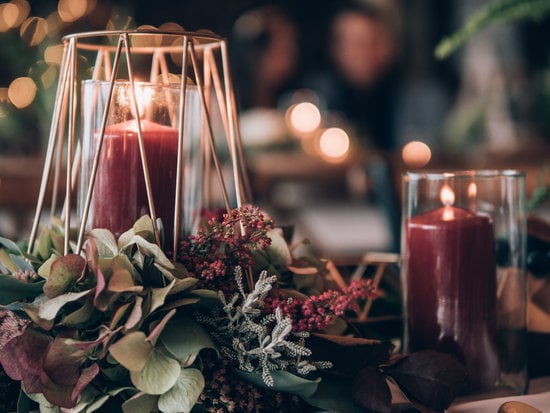What are the responsibilities of a wedding planner? A wedding planner plays a crucial role in ensuring that a couple’s special day goes off without a hitch. From the initial consultation to the post-wedding wrap-up, wedding planners take on a wide range of tasks and responsibilities to help create the perfect wedding. In this article, we will explore the various responsibilities of a wedding planner and the importance of their role in planning a wedding.
When it comes to planning a wedding, there are countless details to consider and coordinate. This is where the expertise of a wedding planner comes into play. From budget management to vendor coordination, timeline creation to conflict resolution, wedding planners work tirelessly behind the scenes to bring couples’ dreams to life. The responsibilities of a wedding planner are diverse and essential to the success of any wedding.
In the following sections, we will delve into the specific responsibilities of a wedding planner, including initial consultation, vendor coordination, budget management, timeline and logistics, wedding day coordination, communication and conflict resolution, and post-wedding wrap-up. By understanding the full scope of their role, couples can better appreciate the value that a skilled and dedicated wedding planner brings to their special day.
Initial Consultation
When it comes to the responsibilities of a wedding planner, there are several key aspects to consider. First and foremost, one of the primary roles of a wedding planner is to act as a liaison between the couple and all the vendors involved in executing their vision for their special day. From initial consultations to post-wedding wrap-up, wedding planners serve as invaluable partners in making sure that everything goes off without a hitch.
One of the initial responsibilities of a wedding planner is to conduct an extensive consultation with the couple. During this process, the wedding planner will discuss crucial details such as budget, theme, and overall vision for the wedding. This meeting sets the foundation for all the planning that follows and helps ensure that everyone is on the same page from the outset.
In addition to understanding these critical elements, a skilled wedding planner will also provide guidance and expertise in areas where couples may be unsure. Whether it’s choosing between different vendors or making budget-conscious decisions, an experienced wedding planner can help navigate these choices by offering valuable insight and recommendations based on years of industry experience.
| Responsibilities | Description |
|---|---|
| Initial Consultation | The role includes an extensive consultation with the couple. |
| Guidance and Expertise | Couples receive valuable insight and recommendations involving vendor choices. |
| Strategic Planning | A skilled professional can navigate logistics issues related to venues and themes. |
Vendor Coordination
When it comes to planning a wedding, one of the most important responsibilities of a wedding planner is vendor coordination. This crucial task entails finding the right vendors such as caterers, florists, photographers, and musicians to bring the couple’s vision to life on their special day.
From researching and selecting vendors to negotiating contracts and managing communication, wedding planners play a crucial role in ensuring that every detail is taken care of with the utmost professionalism and attention to detail.
Finding the Right Vendors
Wedding planners are tasked with thoroughly researching and recommending vendors who align with the couple’s style, budget, and overall vision for their wedding. This involves conducting extensive market research, attending vendor showcases, and leveraging professional networks to identify top-quality vendors in various categories.
Negotiating Contracts
Once the ideal vendors have been selected, wedding planners are responsible for negotiating contracts that encompass all necessary services within the allocated budget. This includes carefully reviewing terms and conditions, payment schedules, cancellation policies, and any other pertinent details to ensure that both parties are in agreement before finalizing arrangements.
Managing Communication
Throughout the entire process of vendor coordination, effective communication is paramount. Wedding planners serve as the central point of contact between the couple and their chosen vendors, ensuring that all parties are well-informed about timelines, expectations, and any changes or updates that may arise. By maintaining open lines of communication, wedding planners help alleviate stress for their clients while keeping all stakeholders aligned towards a successful event.
Budget Management
One of the primary responsibilities of a wedding planner is to assist couples in creating a realistic budget for their wedding. During the initial consultation, the wedding planner will discuss the couple’s financial resources and help them allocate funds to different aspects of the wedding, such as venue rental, catering, decorations, entertainment, and more. This process involves educating the couple about typical costs associated with weddings in their area and helping them prioritize their spending based on their preferences.
Once a budget has been established, the wedding planner takes on the crucial role of negotiating with vendors on behalf of the couple. This includes obtaining quotes from various vendors for services or products needed for the wedding, comparing prices, and ultimately securing agreements at the best possible rates. The wedding planner’s industry connections and experience often allow them to negotiate discounts or package deals that can help couples save money without sacrificing quality.
Monitoring Expenses and Making Adjustments
Throughout the planning process, it is the responsibility of the wedding planner to track all expenses related to the wedding and ensure that they align with the established budget. If unexpected costs arise or if there are changes in plans that affect spending, it is up to the wedding planner to communicate these developments to the couple promptly and make adjustments as necessary.
By actively managing expenses and keeping a close eye on financial matters, wedding planners help couples stay on track with their budget while still achieving their dream wedding.
Timeline and Logistics
A wedding planner plays a pivotal role in ensuring that a couple’s special day goes off without a hitch. One of the key responsibilities of a wedding planner is to create a comprehensive timeline for the wedding day and manage all logistical details related to transportation and setup.
Creating a timeline for the wedding day involves working closely with the couple to understand their vision for the day, including the ceremony, cocktail hour, reception, and any other events or activities they have planned. It also entails coordinating with vendors to ensure that everyone involved in the wedding is on the same page regarding timing and logistics.
In addition to creating a timeline, wedding planners are also responsible for managing logistical details such as transportation for the couple, wedding party, and guests. This could involve organizing transportation to and from the ceremony and reception venues, as well as arranging any necessary accommodations for out-of-town guests. Wedding planners also oversee setup details such as venue decoration, seating arrangements, and any other logistical aspects of the event.
When it comes to managing these timelines and logistical details, clear communication is key. Wedding planners need to be effective communicators not only with their clients but also with vendors, venue staff, and anyone else involved in the wedding day. Additionally, they must have strong organizational skills to ensure that every detail is accounted for and executed according to plan.
| Responsibility | Description |
|---|---|
| Create Timeline | Work closely with couples and vendors to develop a comprehensive schedule for the wedding day |
| Manage Logistical Details | Organize transportation for couples, wedding party, and guests; oversee setup details at venues |
| Effective Communication | Clear communication with clients, vendors, and other parties involved; strong organizational skills are essential |
Wedding Day Coordination
On the actual wedding day, the responsibilities of a wedding planner expand to include crucial tasks to ensure that the event runs smoothly and successfully. From overseeing the setup of the ceremony and reception spaces to managing vendors and handling any unforeseen issues, the wedding planner plays a pivotal role in ensuring that the couple’s vision for their special day comes to life.
Wedding Day Coordination Responsibilities
- Overseeing Setup: One of the primary responsibilities of a wedding planner on the wedding day is to oversee the setup of the ceremony and reception venues. This includes ensuring that decorations are put in place according to plan, that seating arrangements are organized, and that any special elements or features are properly executed.
- Managing Vendors: The wedding planner is also responsible for coordinating with all vendors involved in the wedding, including caterers, florists, photographers, musicians, and more. They ensure that each vendor arrives on time, knows their responsibilities for the day, and has everything they need to do their job effectively.
- Handling Unforeseen Issues: Inevitably, unforeseen issues may arise during a wedding day. It is the responsibility of the wedding planner to handle these challenges efficiently and discreetly. Whether it’s a vendor running late or a sudden change in weather impacting an outdoor ceremony, the wedding planner must think quickly and find solutions.
The ability to multitask and remain composed under pressure is essential for a wedding planner on the actual day of a wedding. Their attention to detail and strong organizational skills allow them to navigate any unexpected challenges seamlessly while ensuring that everything unfolds according to plan.
Ultimately, effective coordination on the wedding day by a skilled wedding planner helps alleviate stress for both the couple and their families. By playing a vital behind-the-scenes role, these professionals contribute significantly to creating an unforgettable experience for everyone involved in this important milestone.
Communication and Conflict Resolution
When it comes to the responsibilities of a wedding planner, communication and conflict resolution are crucial aspects of their role. A wedding planner acts as the main point of contact for the couple and their families throughout the planning process.
This entails regular updates, meetings, and ongoing discussions to ensure that everyone is on the same page. Clear and effective communication is key in understanding the couple’s vision for their special day and making sure that all details are executed accordingly.
In addition to being a central point of contact, wedding planners also play a critical role in handling any conflicts or challenges that may arise during the planning process. Whether it’s disagreements between family members, unforeseen logistical issues, or last-minute changes to the venue or vendors, the wedding planner must navigate these challenges with professionalism and tact. This includes offering solutions, mediating discussions, and providing expert guidance to alleviate any tensions or concerns that may arise.
To effectively manage communication and resolve conflicts, wedding planners often utilize a combination of communication skills, organization, and flexibility. By maintaining open lines of communication with all parties involved and staying up to date with changes or developments in the planning process, wedding planners can proactively address any potential conflicts before they escalate.
Furthermore, their ability to adapt to unexpected changes while remaining calm under pressure is essential in ensuring a smooth and stress-free experience for the couple and their families.
- Regular updates and meetings with couples
- Acting as a mediator for family disagreements
- Proactive problem-solving
- Remaining adaptable in the face of unexpected challenges
- Keeping all parties informed of any changes throughout the planning process
Post-Wedding Wrap-Up
In conclusion, the role of a wedding planner is crucial in ensuring that a couple’s special day goes off without a hitch. From the initial consultation to the post-wedding wrap-up, a wedding planner’s responsibilities are vast and varied. They act as not only a coordinator but also as a budget manager, communicator, and problem solver.
One of the most important responsibilities of a wedding planner is to ensure that all final details are taken care of after the wedding day. This includes finalizing payments with vendors, returning rental items, and making sure that all loose ends are tied up. By taking care of these post-wedding responsibilities, the wedding planner allows the couple to truly relax and enjoy the first days of their new life together.
Overall, what are the responsibilities of a wedding planner? The duties range from the initial stages of planning, such as budget management and vendor coordination, to handling last-minute issues on the actual wedding day.
Their ability to communicate effectively and find solutions to any problems that may arise makes them an invaluable addition to any couple’s journey to “I do.” So if you’re considering hiring a professional for your big day, rest assured that they’ll work tirelessly from start to finish to bring your dream wedding to life.
Frequently Asked Questions
What Is the Role of Wedding Planner?
The role of a wedding planner is to assist couples in planning and organizing their wedding day. This may include helping with the selection of vendors, creating timelines, managing budgets, coordinating the logistics of the event, and even providing emotional support for the couple.
What Skills Does a Wedding Planner Need?
A successful wedding planner needs to have excellent organizational skills, attention to detail, and strong communication abilities. They should also possess creativity, problem-solving skills, the ability to work under pressure, and be adept at multitasking. Customer service and negotiation skills are also important in this role.
What Is Everything a Wedding Planner Does?
A wedding planner is responsible for a wide range of tasks related to planning a wedding. These can include budget management, finding and contracting vendors such as caterers or florists, creating timelines and schedules for the day, coordinating with the venue staff, managing guest lists and RSVPs, providing design and décor ideas, attending appointments with the couple, and overseeing the setup on the wedding day itself.
Essentially, a wedding planner takes on a variety of logistical responsibilities so that the couple can focus on enjoying their special day.

I have been involved in marriages for over 20 years helping couples and singles understand more about them.





